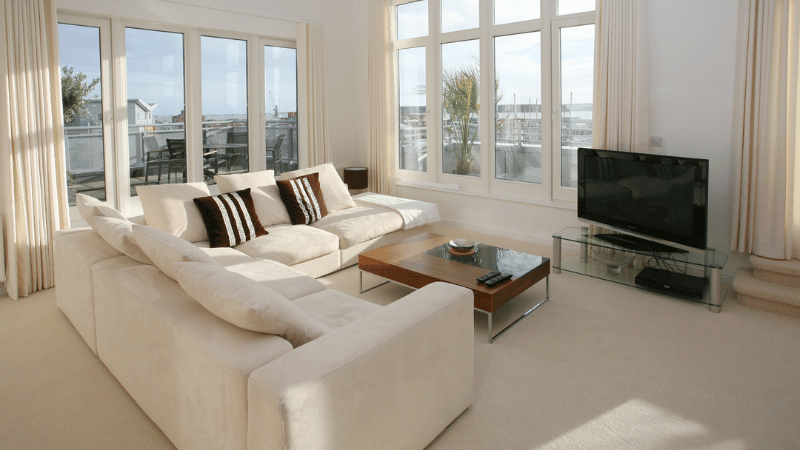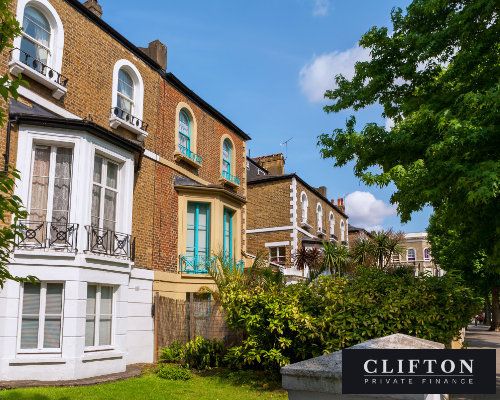Categories
Second Charge Mortgages for Buy to Lets

The UK buy-to-let market has undergone significant changes in recent years, with increased regulations and evolving requirements that landlords must meet to remain compliant. One area of growing importance is property energy efficiency. The UK government is pushing for higher Energy Performance Certificate (EPC) standards to combat fuel poverty and improve rental living conditions. This development places pressure on landlords to make costly property upgrades.
For landlords looking to raise capital for these improvements without disrupting their existing mortgage arrangements, a second charge mortgage buy to let offers an appealing financing option.
Here, will explore what a second charge mortgage is, its benefits for buy-to-let landlords, and how it can be used to fund property upgrades, especially in light of anticipated EPC legislation changes.
Get Second Charge Mortgage Quote
Skip To:
What is a Second Charge Mortgage?
Why Consider a Second Charge Mortgage for Buy-to-Let Properties?
Using Second Charge Mortgages for EPC Upgrades
How Second Charge Mortgages Can Help Fund EPC Upgrades
Considerations for Landlords: Challenges and Solutions
Why Clifton Private Finance for Second Charge Mortgage Buy to Let?
How Does a Second Charge Mortgage Work?
Alternative Financing Options for Landlords
We’re Here to Help with Buy-to-let Second Charge Mortgages
What is a Second Charge Mortgage?
A second charge mortgage is a type of loan secured against a property that already has a primary or "first charge" mortgage. The term "second charge" reflects the loan's repayment priority; in the event of default and repossession, the primary mortgage lender is paid first. Any remaining equity in the property is then used to pay off the second charge mortgage.
Landlords may opt for a second charge mortgage instead of remortgaging their buy-to-let property to access additional funds for various reasons. It offers flexibility, especially if the landlord has a favourable interest rate on the primary mortgage, significant early repayment charges (ERCs), or poor credit history.

Why Consider a Second Charge Mortgage for Buy-to-Let Properties?
Buy-to-let property owners often need to access funds for various purposes, including home improvements, debt consolidation, and business investments. A second charge mortgage allows landlords to raise funds quickly and without affecting the terms of their existing mortgage.
The key advantages of second charge mortgages for buy-to-let landlords include:
- Access to Higher Borrowing Limits: Second charge lenders typically allow borrowing up to 100% of the property's total loan-to-value (LTV), making it a viable option for those with significant equity.
- Protecting Existing Mortgage Terms: If a landlord has a low-interest primary mortgage or would incur high ERCs on a remortgage, a second charge mortgage enables additional borrowing without altering the original mortgage terms.
- Flexible Loan Purposes: Funds can be used for various needs, including property upgrades, debt consolidation, business funding, and even tax bill payments.
- Quick and Flexible Financing: Second charge mortgages can often be arranged within 2-3 weeks, allowing landlords to access funds swiftly.
Second Charge Mortgage Case Studies
Get Second Charge Mortgage Quote
Using Second Charge Mortgages for EPC Upgrades
The New Minimum Energy Efficiency Standards
The UK government has announced plans to increase the minimum EPC rating for rental properties to band C by 2030, a significant rise from the current requirement of band E for private rentals. This change is part of a broader initiative to tackle fuel poverty and reduce carbon emissions.
Upcoming EPC Legislation Changes
- Proposed Timeline: Originally slated for implementation by 2028, the deadline has now been extended to 2030, giving landlords a bit more time to comply.
- Consultation Process: The government was expected to consult on these changes by the end of February 2025 (a deadline which has now passed!), and in theory will provide further clarity on specific requirements, potential exemptions, and enforcement.
- Impact on Fuel Poverty: The changes are expected to lift over 1 million households out of fuel poverty, as tenants in properties with EPC ratings of D to G often face higher energy costs.
While the objectives are laudable, the new standards will likely require significant property upgrades for many landlords, especially those owning older properties.
Get Second Charge Mortgage Quote

How Second Charge Mortgages Can Help Fund EPC Upgrades
Landlords facing substantial costs to meet the new EPC standards can use a second charge mortgage as a way to finance the required improvements. Here’s how it can benefit them:
- Access to Funds Without Disrupting Primary Mortgage: Many landlords may not want to remortgage their properties, especially if it means losing a favourable rate or incurring ERCs. A second charge mortgage allows landlords to raise the necessary capital while leaving the primary mortgage intact.
- Flexible Loan Amounts and Repayment Terms: Second charge mortgage loans can range from £10,000 to significantly higher amounts, with repayment terms of up to 30 years, providing a manageable way to spread the cost of upgrades.
- Improving Property Value and Tenant Appeal: By upgrading the energy efficiency of a property, landlords can not only comply with legislation but also potentially increase the property’s value and attractiveness to tenants. Properties with higher EPC ratings are more appealing due to lower energy costs.
- Potential Tax Benefits: Depending on the nature of the improvements, landlords may be able to offset some of the upgrade costs against rental income for tax purposes.
Considerations for Landlords: Challenges and Solutions
While a second charge mortgage offers a practical solution for funding EPC upgrades, there are several considerations landlords need to be aware of:
- Cost of Upgrades: Energy efficiency improvements, especially in older properties, can be expensive. Depending on the property's current EPC rating, upgrades may involve insulation, boiler replacement, window improvements, or even installing renewable energy sources such as solar panels.
- Clear Guidance Needed: The upcoming consultation may clarify spending caps, exemptions, and other financial support measures. Landlords should stay informed about these developments to plan their upgrades accordingly.
- Availability of Skilled Tradespeople: With more landlords needing to carry out upgrades, the demand for skilled tradespeople may rise, potentially leading to delays. It’s advisable to plan and book any required work as early as possible.
Get Second Charge Mortgage Quote

Why Clifton Private Finance for Second Charge Mortgage Buy to Let?
Clifton Private Finance offers bespoke second charge mortgage solutions, making it easier for landlords to secure financing for buy-to-let properties. Here's why landlords choose Clifton Private Finance:
- Expertise in Second Charge Mortgages: With a deep understanding of the UK mortgage market, Clifton Private Finance provides tailored advice to help landlords find the best financing options for their needs. Whether funding property upgrades or consolidating debt, our advisers can guide you through the process.
- Market-Leading Rates and Terms: We offer competitive second-charge mortgage rates with flexible terms ranging from 1 to 30 years, ensuring landlords can find a repayment schedule that suits their financial situation.
- Fast and Efficient Service: Second charge mortgage applications are typically completed within 2-3 weeks, enabling landlords to access funds quickly for time-sensitive improvements.
- Access to a Wide Range of Lenders: Clifton Private Finance has connections with various lenders, including those who can accommodate unique financial circumstances, such as adverse credit histories or higher income multipliers.
Get Second Charge Mortgage Quote
How Does a Second Charge Mortgage Work?
A second charge mortgage is an additional loan secured against your property, separate from your existing mortgage. It allows you to borrow against your home's equity without affecting your primary mortgage. The loan amount and terms are based on factors like your income, credit score, and available equity.
Here’s a hypothetical example of how the process can work:

Alternative Financing Options for Landlords
While second charge mortgages are a viable option for many landlords, it's worth considering alternatives:
- Remortgaging: For those who are not locked into a favourable rate or faced with high ERCs, remortgaging can be an option. However, this involves paying higher interest on the entire mortgage amount.
- Bridging Loans: Short-term financing for immediate needs, such as rapid property upgrades. Bridging loans typically come with higher interest rates.
- Further Advances: Some lenders allow additional borrowing on an existing mortgage, but the loan purpose may be restricted, and borrowing limits may be lower than with a second charge mortgage.
Next Steps for Landlords
With the UK government’s plans to improve EPC standards for rental properties, landlords need to start planning for the upcoming changes. Here’s how landlords can prepare:
- Assess the Property’s Current EPC Rating: Determine the upgrades needed to achieve an EPC band C rating. Conducting a professional assessment can provide clarity on the required improvements and costs.
- Consult a Mortgage Adviser: Speak with a specialist mortgage adviser to explore second charge mortgage options and other financing solutions.
- Plan the Upgrades Early: Given the potential increase in demand for skilled tradespeople, it’s advisable to schedule the work well in advance of the 2030 deadline.
Second Charge Mortgage Calculator
Utilise our second charge mortgage calculator to receive an estimated quote for costs and fees. It provides an approximation of potential interest payments based on the amount you wish to borrow, the loan term, and your interest rate
Get Second Charge Mortgage Quote
We’re Here to Help with Buy-to-let Second Charge Mortgages
A second charge mortgage for a buy-to-let property offers a practical solution for landlords looking to fund property improvements, particularly in light of upcoming EPC legislation changes.
With Clifton Private Finance’s tailored second charge mortgage solutions, landlords can raise the necessary funds without disrupting their existing mortgage arrangements, ensuring they stay ahead of compliance requirements and continue to provide high-quality, energy-efficient rental properties.
For more information, contact Clifton Private Finance or book a consultation to discuss your specific requirements.












